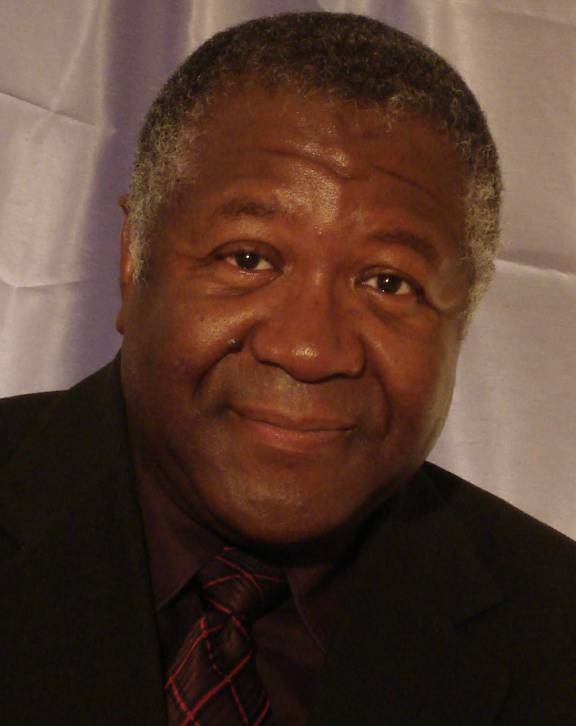
RH: What is it that inspired you to pursue a career in entertainment?
AS: I don’t actually remember choosing to pursue a career in entertainment. I was always comfortable speaking in front of people. As a child, that meant the adults in my life would regularly give me things to do which involved speaking or performing. One thing just seemed to lead to another. I honestly don’t remember thinking “I want to be an actor”. I remember the adults around me telling me I was going to be an actor.
Tell us a little of your story of being involved with theater and your university training.
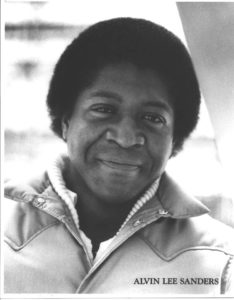 My high school years were 1967 to 1970. The Civil Rights Movement, protests against the Vietnam war, and also, the worldwide youth movement colored everything about my life. Performance was a major part of all these movements. Plays about the struggles of the Black community, and plays about the Generation Gap between young and old were being written and performed all over the United States (and the world). Everyone seemed to be trying to include young people in their artistic endeavors. Young people were also creating their own new forms of expression.
My high school years were 1967 to 1970. The Civil Rights Movement, protests against the Vietnam war, and also, the worldwide youth movement colored everything about my life. Performance was a major part of all these movements. Plays about the struggles of the Black community, and plays about the Generation Gap between young and old were being written and performed all over the United States (and the world). Everyone seemed to be trying to include young people in their artistic endeavors. Young people were also creating their own new forms of expression.
Theater companies were being created in major cities around the country. It wasn’t until the 1960’s that the majority of regional theaters in the U.S. came into existence. Prior to the 60’s, professional actors were primarily New York or L.A. based. Public and corporate funding for the arts changed all that. Suddenly, opportunities in cities all over the country were created which had never existed before.
As a high school student, I was able to earn credits toward graduation working with the professional (and relatively new) Seattle Repertory Theatre Company. I was able to quit my paper route and earn money doing children’s theater with a small, semi-professional group. I also earned a little money as a member of a Black theater company. It wasn’t a lot of money, but the respect and encouragement I got from the adults around me gave me confidence in myself as a performer — which was worth more than money.
I was encouraged to study acting by the professionals I met. They suggested where they thought I should study and helped get into university.
How did you get involved in TV/film? What do you consider your first professional on-screen credit? What are your memories of that role/job?
I came to British Columbia, Canada in May of 1984, to do a play. I fell in love with the stage manager of the show and we got married that November (we’re still married). We thought we would be living in the U.S. because we didn’t think there would be much work for me in Canada. We were wrong. Vancouver was just starting to grow into the major media production center it’s become. It is now the third largest recorded media production center in North America behind only L.A. and New York. I was lucky enough to participate in that growth over the last thirty-four years.
My first film gig was one line in a movie called CINDERELLA LIBERTY starring James Caan and Marsha Mason. She was nominated for a leading actress Oscar for her role as a prostitute with a little boy and a heart of gold who falls in love with a Navy petty officer at a crossroad in his life.
The scene I’m in is early in the movie in a crowded bar/pool hall where they meet. It’s not a very long scene. He wanders through the bar to where she’s playing pool. He watches her win a game, challenges her, they play — she wins. Maybe five minutes.
It took SEVEN DAYS to shoot. I didn’t know anything then about all the individual shots that go into what (in the finished product) goes by so quickly. All the time it takes to move lights and cameras. The number of takes there can be until the director, and the actors, get something they all like … plus … two weeks after we finished the scene, I got a call to come in for another day! The director decided he wanted a shot of me and the guy standing beside me to set-up the first time the Marsha Mason character is seen.
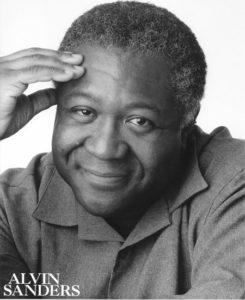 That extra shot makes me noticeable in the film. Without it, I would just be part of the crowd. I didn’t even get my name in the credits because you don’t actually see me say my one line in the movie. The line is there. People know it’s me because of how distinctive my voice is … but it’s thrown into the mix of action and cheering when she wins the first pool game we see. I still remember the line: “Keep shooting like that Maggie, and you’ll make enough dough to go back to New Orleans.”
That extra shot makes me noticeable in the film. Without it, I would just be part of the crowd. I didn’t even get my name in the credits because you don’t actually see me say my one line in the movie. The line is there. People know it’s me because of how distinctive my voice is … but it’s thrown into the mix of action and cheering when she wins the first pool game we see. I still remember the line: “Keep shooting like that Maggie, and you’ll make enough dough to go back to New Orleans.”
I shot that movie in 1973 in Seattle during a break I took from university (to work with a street-theater company in Chicago). I came home to Seattle for a few months (before I went back to university in Pittsburgh) and got the gig while I was there. Eight days of shooting and forty-five years of residual checks make that one (uncredited) line, one of the most profitable gigs I’ve ever had. No way did I think that possible when I went to set the first day.
You have guest-starred on some incredible shows throughout the years. Could you tell us about a one or two that really stand out and tell us why they stand out?
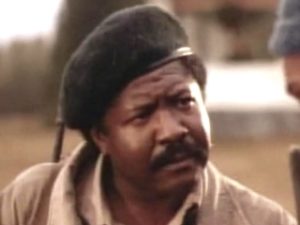 I remember how impressed I was with how the creative people on MACGYVER were able to make places in metropolitan Vancouver look like so many different places around the world. They’d stick some reeds in the sand on a beach in downtown Vancouver and … boom … we were in Vietnam. I remember playing an African park warden dealing with poachers who were shooting rhinos, cutting off their horns, and leaving them suffering in the bush. I still remember jumping out of a jeep (in a field of tall ready-to-be-harvested hay, which was part of a dairy farm in Surrey, BC) and running over to the mechanical puppet rhino which had just flown in from LA that morning. There were three puppeteers blowing into tubes and moving wires which made the rhino’s eyes move and water and the lips quiver and the head shake. It looked so real and the rhino looked to be in so much pain it almost made me cry. Now they’d probably do it all in a computer and when I walked over to the “rhino” while we were shooting … there would be nothing but a rhino photo on a stick.
I remember how impressed I was with how the creative people on MACGYVER were able to make places in metropolitan Vancouver look like so many different places around the world. They’d stick some reeds in the sand on a beach in downtown Vancouver and … boom … we were in Vietnam. I remember playing an African park warden dealing with poachers who were shooting rhinos, cutting off their horns, and leaving them suffering in the bush. I still remember jumping out of a jeep (in a field of tall ready-to-be-harvested hay, which was part of a dairy farm in Surrey, BC) and running over to the mechanical puppet rhino which had just flown in from LA that morning. There were three puppeteers blowing into tubes and moving wires which made the rhino’s eyes move and water and the lips quiver and the head shake. It looked so real and the rhino looked to be in so much pain it almost made me cry. Now they’d probably do it all in a computer and when I walked over to the “rhino” while we were shooting … there would be nothing but a rhino photo on a stick.
You’ve done plenty of voice work over the years. What do you enjoy about voice work? Any truly memorable roles that are really special to you?
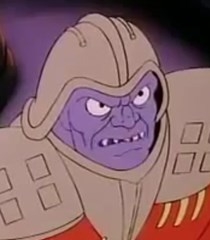 I love voice work because since you can’t SEE me, I can be anything or anyone. The voice has only the age or ethnicity you give to it. My first animated voice gig was sixty-five episodes on a show called THE NEW ADVENTURES OF HE-MAN. I played the purple, not-very-bright alien sidekick to Skeletor named Floog. The show didn’t go over very well (I doubt you could even find episodes on YouTube). But I still remember going to Toys ‘R Us and buying fifteen of the Floog action figures to give to my relatives. Having an action figure of something you’ve created is really cool.
I love voice work because since you can’t SEE me, I can be anything or anyone. The voice has only the age or ethnicity you give to it. My first animated voice gig was sixty-five episodes on a show called THE NEW ADVENTURES OF HE-MAN. I played the purple, not-very-bright alien sidekick to Skeletor named Floog. The show didn’t go over very well (I doubt you could even find episodes on YouTube). But I still remember going to Toys ‘R Us and buying fifteen of the Floog action figures to give to my relatives. Having an action figure of something you’ve created is really cool.
I may be wrong, but I believe Trading Christmas may have been your first Hallmark movie, but you might be better remembered from Love At the Thanksgiving Parade, another early Hallmark film for you. While I know you don’t have the network in Canada, when you have done these family-friendly films with Hallmark, what have you enjoyed about these films especially?
There is a real sense of camaraderie on a Hallmark set. A relaxed feeling. I don’t know if it’s the material or the fact that most of us (cast and crew) have probably worked together before sometime. I think it may simply be because the majority of the people on a Hallmark set make their home where the film is being shot. We really know each other … and have usually known each other for a number of years. It’s nice.
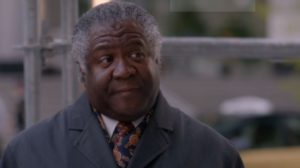
Love At the Thanksgiving Day Parade
In recent years, Hallmark viewers have seen you in several films (more than once playing the Reverend or minister). Why do you think these Hallmark films continue to do so well and resonate with the viewers?
Romantic comedies have been a popular genre since the silent movie days. One of my all-time favorites? REMEMBER THE NIGHT. Barbara Stanwyck and Fred MacMurray. If you haven’t seen it, find it on one of your streaming services. You’ll be glad you did. Sometimes all we want to do is spend a little time in a pleasant place with pleasant people. In Hallmark movies, even the dramatic, tense moments are … well … pleasant.
You have been with the CW show Riverdale from the beginning as Pop Tate. How did that role come about for you?
I never auditioned for Pop Tate. I auditioned for Principal Weatherbee.
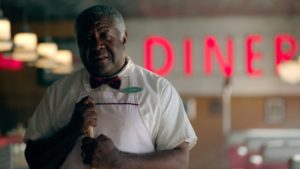
Riverdale
All I know is that three days after my Weatherbee audition, I got the news I’d been cast as Pop Tate. Not really being an Archie fan at the time, I asked my agent to send me something about Pop Tate. She sent me the description they had sent to the agents about what they were looking for:
[POP TATE] This character is definitely a process of discovery for the Producer’s….Male, 30’s-40’s…a “Viggo Mortensen” type, but open to all ethnicities…with a slightly darker “Twin Peaks” approach to the performance. He is the owner of the local diner…RECURRING
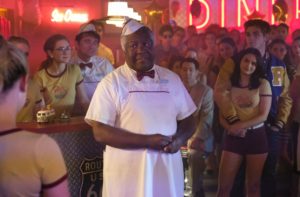
Riverdale — “Chapter Fifteen: Nighthawks” — Image Number: RVD202b_0219.jpg — Pictured (L-R): Alvin Sanders as Pop Tate, Camila Mendes as Veronica Lodge, and KJ Apa as Archie Andrews — Photo: Bettina Strauss /The CW — é 2017 The CW Network. All Rights Reserved
Process of discovery? No kidding! I’m glad the creative people working on this show have been open to what “feels” right to them. Even as it relates to casting, obviously. I’m nothing like what they “thought” they were looking for. But they saw something in me they just liked. I felt right to them.
The RIVERDALE fans seem to think they were right.
What do you enjoy the most about playing Pop Tate? Any hopes for season three? How do the young people on set relate to you?
I like the way everyone looks at Pop. Most characters on the show feel positive about Pop. So most of my scenes involve people smiling at me and me smiling back. It makes my dramatic moments more dramatic because you (the audience) just aren’t used to seeing Pop that way.
I have no hopes about what will happen with Pop. I have faith in the writers and producers and all the creative types on this show. I have no hopes. I have the curiosity of a fan. I wonder what is coming next, too!
Any upcoming works/films you can mention?
I’ll be shooting two more Hallmark movies over the next three weeks. I’m a farmer in both. There is a Christmas one (of course) titled MY THREE WISE MEN where I’m the owner of a Christmas tree farm and another titled BAKING FOR KEEPS where I have an orchard full of apples and I need help getting them picked in time.
Have you experienced racial prejudice/bias in the business? How have you seen things changing in terms of minorities in the business?
For performers, the entertainment industry is based on “type” for the most part. Are you “right” for the part? Prejudice and bias color the lives of ALL performers. The racial aspect is obviously something that affects me, but so do many other things which have nothing to do with my ethnicity. My height, my age, my weight, where I live, how I speak … which is the most important? What producers use as the primary reason for casting one person over another changes from role to role.
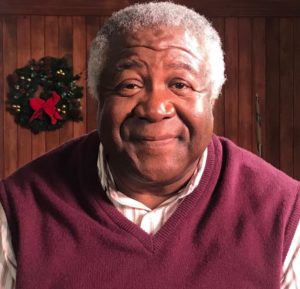 The fact that people in decision-making positions are now looking to make more diverse decisions about casting is a good thing for ALL performers. The streaming world requires American producers to start being more diverse with their casting because the projects they create have to be popular worldwide, immediately.
The fact that people in decision-making positions are now looking to make more diverse decisions about casting is a good thing for ALL performers. The streaming world requires American producers to start being more diverse with their casting because the projects they create have to be popular worldwide, immediately.
What do you like to do in your free time?
I read a lot. I listen to music a great deal, too. Often I do them both at the same time.
What is your advice to young people considering a career in entertainment?
Being a performer is an artistic choice. Few artists of any kind become the rich and famous “stars” which our current celebrity culture seems to be making young people dream about. Dream about working on being the best you can be at whatever you choose to be. All you should be trying to do is be the best you can be each and every time you get a chance. If fame and fortune happen to come your way … well … kinda let that come as a surprise. Don’t let fame and fortune be your goal. Don’t let it be what you were striving to achieve. That’s a dangerous choice. Being a very good actor, dancer, singer, writer, painter … well … whatever the art form … being really good at it just takes commitment and hard work. Those are things YOU can control.

In so many ways, I feel as though I am sharing a genuine screen legend with my readers today, and there is no doubt that his candor, outlook, and advice are qualities that are absolutely relevant today but sometimes rather scarce amongst the more ostentatious exhibitions and glittering facades that overwhelm society today. Alvin’s message is as timely these days as it was thirty years ago, and there is nothing quite like a man of his reputation and status investing the time to depict with authenticity and attention to detail a character that truly resonates with a diverse viewership. Alvin is one who has survived the obstacles, both perceived and existent, and he still finds himself a busy working actor even to this day. He does not spend his time lamenting the seasons of yore nor his missed opportunities, and I believe he belongs to a breed of actors who are content with their lots in life and who value each and every experience sent their way. Viewers cannot help but appreciate his dedication to the craft, and I am convinced he will remain influential in the business for as long as he so chooses.
If you have not watched Riverdale and/or some of his past Hallmark works, I invite you to do so at your earliest convenience (hint: check out his IMDB link below). Additionally, keep your eyes open for Riverdale season three this fall and his upcoming films (two of which he referenced, but he’s actually got more coming up than just those two). Every time Alvin is on screen, viewers can rest assured that they will witness a man who is genuine, artistic, and committed to playing every role to the best of his ability. Moreover, he definitely receives the unofficial award for being one of the nicest guys around as well as an unassuming screen legend, and I am nevertheless quite honored that he took the time to be as open, honest, and kind as he was in this particular interview. I greatly anticipate the next time I see him on my TV!
FOLLOW ALVIN
1 Comment
-
I feel like I’ve seen him in a lot of roles over the years.
Baking for Keeps–I’m looking forward to that one. Based on a Tule Publishing Book.


